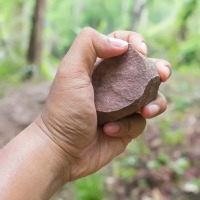Scripture
John 7:3-7 (New Revised Standard Version)
The scribes and the Pharisees brought a woman who had been caught in adultery; and making her stand before all of them, they said to him, “Teacher, this woman was caught in the very act of committing adultery. Now in the law Moses commanded us to stone such women. Now what do you say?” They said this to test him, so that they might have some charge to bring against him. Jesus bent down and wrote with his finger on the ground. When they kept on questioning him, he straightened up and said to them, “Let anyone among you who is without sin be the first to throw a stone at her.” And once again he bent down and wrote on the ground.
Consider
When we are faced with a moral transgression, as in the above story, we must weigh together justice and mercy. Both must be considered for the good of the individual who stands accused as well as for the good of the community. Over time the religious leaders of Jesus’ day had placed increasing emphasis on justice at the expense of mercy. In this story, Jesus reasserted the heart of the law by drawing on compassion from the crowd.
The Latin root for the word “compassion” means to bear with or to suffer with another person. Compassion allows us to enter into another person’s distress and, even further, to be moved to alleviate that distress. We feel with rather than against the other person. We feel moved to help rather than to condemn.
In one simple statement, Jesus exposed the hypocrisy of the accusing crowd and made a case for compassion. Who among you, he said in effect, is so pure and above reproach that you can find no common ground with this woman’s moral failure? Who can look at this woman and not see your own shame and guilt mirrored? Who can stand before God on your own merit as one who does not need rescue from the traps and guiles of sin?
Scripture shows us the effects of Jesus’ words in the next verse:
“When they heard it, they went away, one by one, beginning with the elders; and Jesus was left alone with the woman standing before him” (v. 8).
Who were the first to feel convicted by Jesus’ statement? They were the elders, the religious leaders in the crowd, the teachers who knew the law of Moses better than anyone. It seems a little astonishing that not one of them picked up a stone and threw it at the woman just to save face. However, scripture tells us that each of the elders backed off, and the younger ones followed until the woman was left alone with Jesus.
What are the stones that you like to throw at “sinners” in your life? Are they words of accusation or insult, of reproach or gossip? Do you fling rejection or a cold shoulder at the person who offends you? Do you punish with silence that elevates you to a position of moral superiority?
Before you throw the next stone, ask yourself the same questions that Jesus put to the woman’s accusers. Allow the Spirit to expose your weakness, not to condemn you but to show you the sin that makes you just like the other sinners in your life. Only then might you enter into their distress with them and be moved to find ways to help and heal their suffering.
Pray
FATHER, expose my arrogance that leads me to judge others from a superior position. Remind me of my sin in those circumstances when I am tempted to condemn others. Take the stone from my hand and give me grace instead to forgive those who hurt and offend me.
Reflect
Romans 3:23; Colossians 3:13
Share
When have you been hit by someone’s stone of condemnation? What form did that stone take? Have you ever thrown that same kind of stone yourself?





Leave a Reply